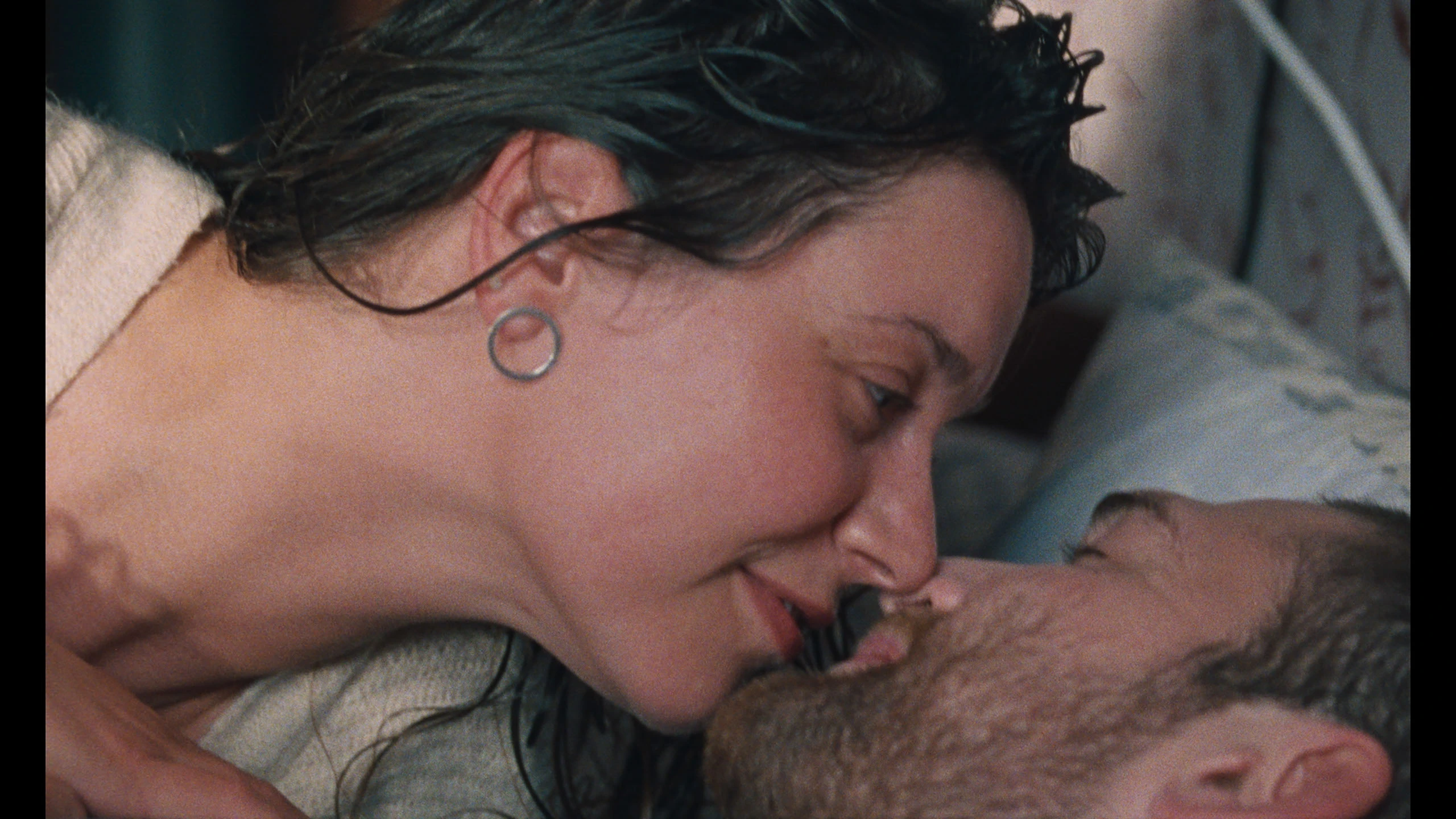Sundance Film Review: Slow
LGBTQ+
Slow
Sundance Film Festival
Director: Marija Kavtaradze
Slow lives in the unspoken murk of new love, showcasing a blithe millennial couple, Elena and Dovydas, as they navigate romance in a queer relationship. The film unravels the politics of movement and touch through glacial pacing. With the first act’s focus on sign language, modern dance and the ecstasy of the first few brushes of skin in a new relationship, director Marija Kavtaradze establishes a language of physicality. Movement overtakes linguistics—in communication, in art, in interpersonal subtext. Vutautas Katkus’ camera lingers over the skin and emphasizes that for Elena and Dovydas, the deaf children with whom they work and their respective families, hands speak where words cannot.
The film contains one shot in particular that highlights the thesis of touch. On their first walk home together, Elena makes a self-effacing jab that she must smell sweaty after her intensive dance rehearsal. Dovydas leans in and takes a big whiff as the camera violently jump cuts through a variety of angles, emphasizing the atypical, intense physicality of such a gesture. In many ways, this two-second bit of visual comedy offers the finest distilment of the film’s supposed message. Here we feel the awkwardness of new love through individuals’ varying communication styles, bonded in a goofy moment that evokes a pleasant discomfort.
In Slow’s second half, Kavtaradze abandons this gentleness in favor of a chilling display of subtle violence—miscommunication, betrayal, a villainization of touch. As Elena and Dovydas’ relationship develops, Slow becomes a myopic film that revolves around Elena’s ignorance and selfishness, chronicling her encounters with minor differences and inflexibility toward those around her. The initial pleasure of romantic touch grows gnarled limbs. The film’s core plot revolves around Dovydas’ asexuality, a fact he presents to Elena upfront on their first real date. This clearly troubles Elena, and the resultant film plays out as a long-winded AITA post where Elena tries to wrap her head around Dovydas’ identity.
In its exploration of queer identity occupying only one side of a romantic relationship, Slow’s most memorable trait is its deep discomfort. Dovydas is endlessly flexible, willing to stretch and reexamine his own personal boundaries as he begins to trust Elena more. On the flip side, Elena meets every slightly contradictory characteristic Dovydas displays—wanting to pleasure Elena but not wanting to receive pleasure himself, openly masturbating and explaining that this derives from a physical pleasure and not a sexual one—with confusion or vitriol. She frames Dovydas’ sexuality as something happening to her. Distressing scenes of sexual coercion only add to the view of this relationship not as an exercise in working to understand each other but rather a quiet, monotonous growth of a toxic tumor between two people.
Described as a portrait of a “beautiful bond,” Slow is instead a grim character study of a deeply unlikable individual with a regressive view of sexuality. The finale’s suggestion of reconciliation between this pair results in a dull puff of an ending where queer identity is again subsumed into the cloisters of heterosexuality; the happy ending a doe-eyed fascination with the miraculous prospect that any sane person could Make This Work. –Audrey Lockie
Showtimes:
In-Person:
Jan. 22nd, 4:30 PM // Megaplex Theatres at The Gateway 6 (SLC)
Jan. 23rd, 6:30 PM // Redstone Cinemas – 1 (Park City)
Jan. 25th, 12:00 PM // Prospector Square Theatre (Park City)
Jan. 27th, 5:45 PM // Egyptian Theatre (Park City)
Online:
Jan. 24th, 8:00 AM–Jan. 29th at 11:55 PM

